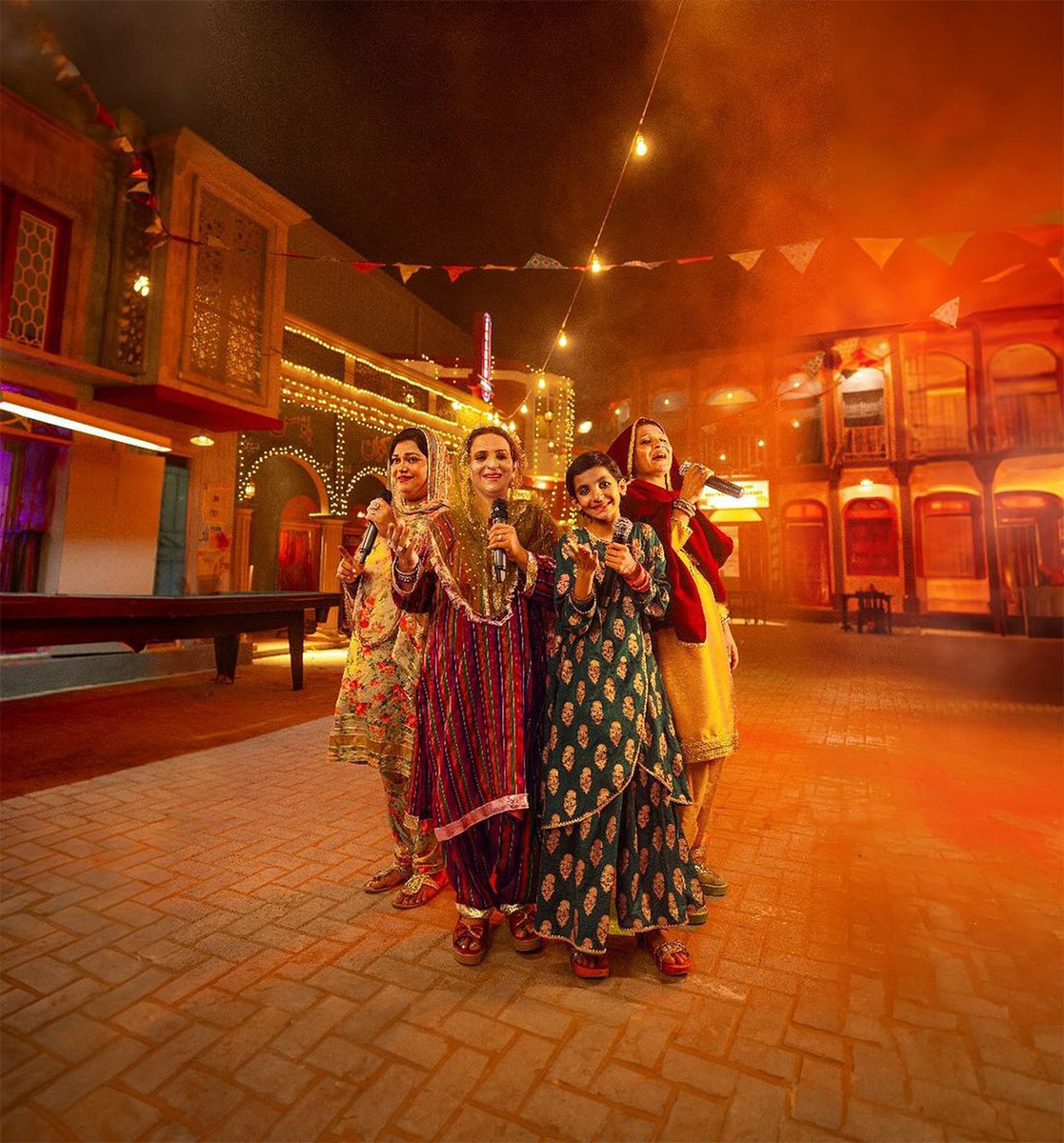LAHORE: The small, congested Gharwi Mohalla in Pakistan’s eastern city of Lahore has produced many legendary folk and ghazal singers like Mehdi Hassan, Naseebo Lal and Reshma. Now, a latest hit by Coke Studio, the longest-running annual TV music show in Pakistan, had added to the list of musical sensations from the neighborhood: the Gharwi Group.
The song called “Blockbuster” blends the deep vocals of Umair Butt with the energy of Faris Shafi, considered a pioneer of Urdu rap, and the soulful singing of the Gharwi Group, and has garnered over 18 million views on YouTube since it was released on May 25.
While Shafi was already well known on the Pakistani music scene and Butt has been hugely appreciated for his vocal prowess after the release of Blockbuster, the true breakout stars are Rooha, Sajida and Abida of the all-women Gharwi Group, who have gone from being struggling street singers to viral sensations overnight.
The gang’s appearance in the video, shot in a stylized version of a typical Pakistani neighborhood featuring vibrant colors, heavy traffic, pedestrian hustle and roadside businesses, has also put the spotlight on the Gharwi Mohalla in Lahore’s Shahdara district off the Grand Trunk Road. The neighborhood is steeped in musical heritage and even derives its name from an instrument, the gharwi, a small, round pot typically used to store milk but on the streets of the Gharwi Mohalla also tapped to produce a musical sound.

The image downloaded on July 9, 2024, shows Gharwi Group. (Coke Studio)
Sajida Bibi, the eldest member of the group and a street singer for the last two decades, said the family traced its roots to the Indian state of Rajasthan.
“Our ancestors, our grandfathers, great grandfathers, all used to live there,” Sajida told Arab News in an interview. “We like singing very much. Reshma is from there [Gharwi Mohalla], Naseebo Lal is from there, Mehdi Hassan is from there.”
The group was discovered by renowned music composer and Coke Studio producer Zulfikar Jabbar Khan, popularly known as “Xulfi,” who came across their videos on YouTube.
“We used to sing on [Lahore’s] food street, our [videos] were playing on YouTube,” Sajida said. “Then Xulfi bhai saw us, liked us and then gave us this [Coke Studio] song. We were happy to sing it.”
Bibi’s younger sister, Rooha, is married to struggling qawwali singer Roohul Hassan and her 12-year-old daughter Saba has also become an overnight sensation for her cameo in Blockbuster.
Hassan initially went with the Gharwi Group for rehearsals to look after her baby brother on set. Xulfi heard her singing a lullaby to the boy and got “goosebumps,” he said in a video on his Instagram page, which prompted him to make her part of the production.
“I was singing lullabies to him when Xulfi uncle heard them and told me why don’t you sing a couple of lines for us too,” she told Arab News.
The rest as they say is history.
“I want to continue to sing, this is what I’ve always wanted,” Saba added. “This is what all the children in Gharwi Mohalla want to do.”
Now the family, which has always struggled financially, earning little from performances at weddings and other events as well as outside popular restaurants, hopes their fortunes will turn.
“I’d like to thank all the people covering our story, we are so excited to share our music with the rest of the world,” Rooha said. “The more people like our music, the more motivated we will be to continue with our family tradition.”
In the future, the group will be working on a Punjabi song with Altaf Hussain Tafu Khan, a prominent classical musician and famed tabla player.
“Tafu has offered us a song based on the success [of Blockbuster],” Rooha said. “We said we’re happy to do it, it’s a Punjabi song, an old Kalaam [folk music].”
Though Tafu does not have the reach of Coke Studio, the ladies of Gharwi Group have big dreams.
“Reshma was like an aunt to us,” Sajida said, referring to one of Pakistan’s most famous folk singers, who died in 2013. “She was famous the world over and we want to follow in her footsteps.”


















